The Art of the Post: The Artist Who Kissed a Painting by Botticelli in the Dark
Read all of art critic David Apatoff’s columns here.
Many of the great artists who worked for The Saturday Evening Post led colorful, interesting lives. One such artist was Stanley Meltzoff, a classically trained artist who worked for the Post between 1956 and 1960.
Before World War II, Meltzoff was an art student who traveled in Italy to study the Renaissance painters. When war broke out, it was only natural that the army put Meltzoff’s knowledge of Italy to use in an intelligence unit assisting with the invasion of Italy. Meltzoff was sent to the landing at Anzio, and when the front lines broke open he entered Rome with the first G.I.s. His role included drawing battle maps and Italian locations and translating key Italian phrases for the G.I.s in the army newspaper, Stars and Stripes. Even in the midst of war, Meltzoff was eager to find a way to draw, so he volunteered to illustrate poems that soldiers sent in to Stars and Stripes. These were published in a book entitled Puptent Poets.
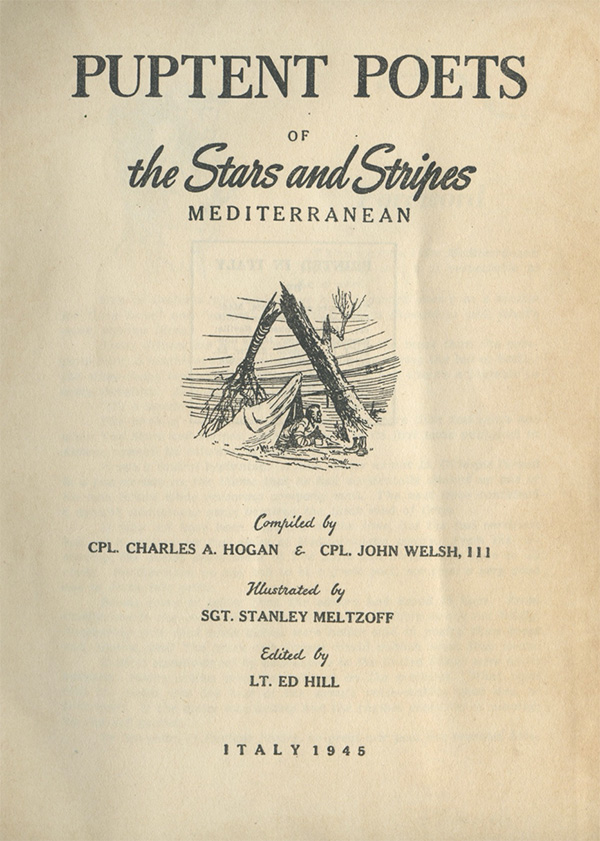
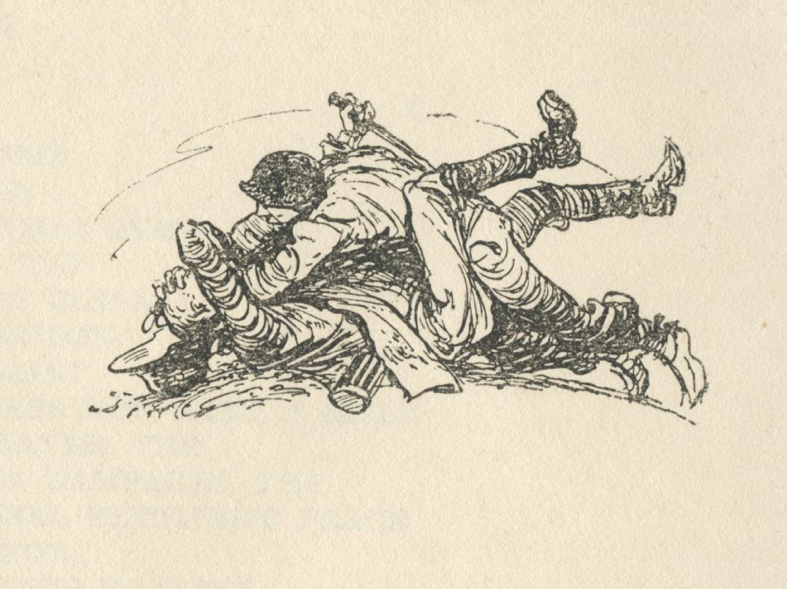
Meltzoff spent three years in Italy as the war raged. The greatest art of the Italian Renaissance was in danger of being destroyed in the fighting, so paintings were evacuated from museums and hidden in the countryside. The entire contents of the famed Ufizzi Gallery in Florence were hastily moved to a remote country villa to protect it from bombing.
As Meltzoff recounted in an interview in the forthcoming book, Stanley Meltzoff: Picture Maker, he was driving a jeep along the Arno River in an area being shelled by German and Canadian artillery when he came across an abandoned villa. Later he wrote about what he discovered there:
…I saw close up the masterworks I had only known from books. The whole inventory of paintings in the Ufizzi was leaning against the walls of the Sitwell’s villa south of the Arno where they had been tucked away in the countryside in case there might be a battle for Florence… The villa was empty, the room I entered was empty. A rooster was perched on a stack of panels in front of which was the Primavera of Botticelli.
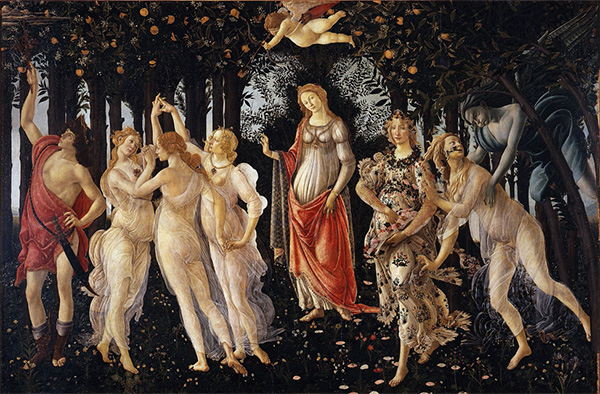
The legendary painting Primavera, about the birth of spring, was created around 1480. It has been described by art historians as “one of the most written about… paintings in the world.” It shows the cold gray wind of March coming in from the right, kidnapping and possessing the beautiful nymph Chloris. The wind marries Chloris and she transforms into the deity Flora, the goddess of spring, the eternal bearer of life. We see Flora here scattering the rose petals of spring on the ground.
Meltzoff stood transfixed in the dim light, staring at the painting.
Flora, life size, was scattering her flowers. As in my dreams I stepped up and kissed my ideal of beauty full on the lips…
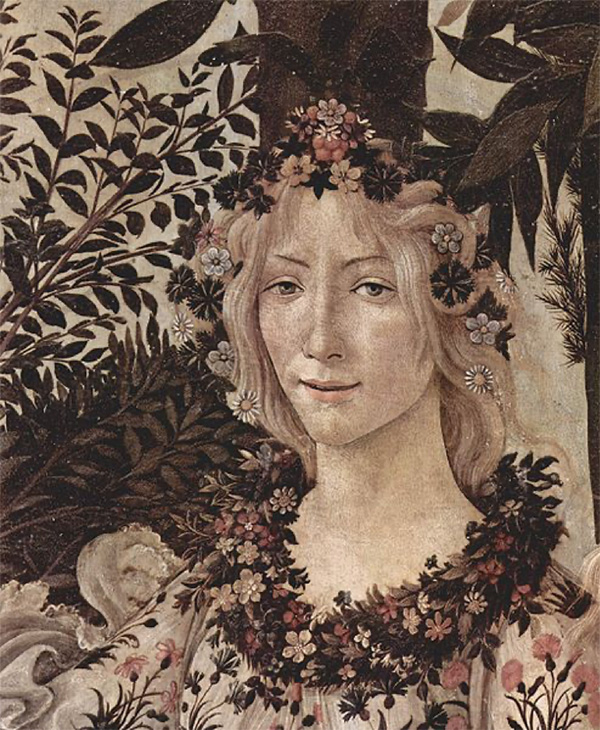
Meltzoff survived the war. Like the goddess of spring he experienced a rebirth, a career he called his “happy period” painting beautiful oil painting illustrations for The Saturday Evening Post, Life, and other top magazines.
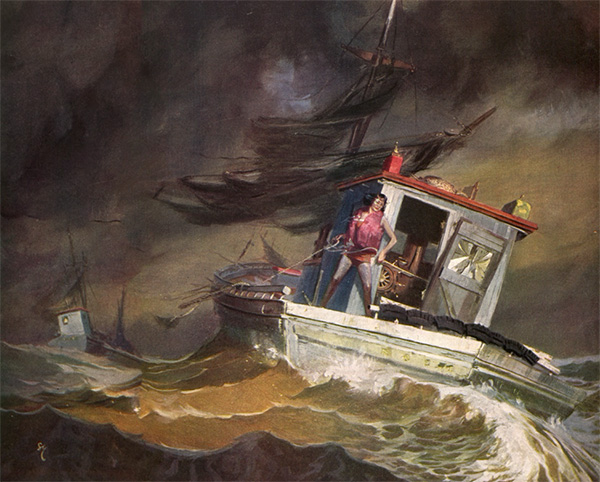
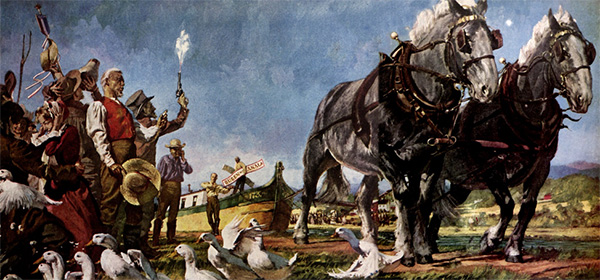
He went on to a distinguished career as a gallery painter, enjoying a long, lucrative career as a painter and an author before he finally passed away in 2006.
But it’s clear that his youthful kiss in the dark with his ideal of beauty remained fixed in his mind. Just as Botticelli painted the Birth of Spring later in life, Meltzoff painted his own Birth of Autumn.
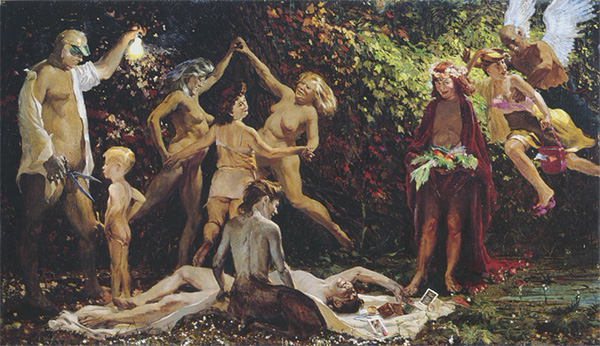
Like many of the illustrators who once worked for the Post, Meltzoff’s work has been rediscovered by a new generation of art lovers. A new book about his art and career, Stanley Meltzoff: Picture Maker, is available from Illustrated Press.
Featured image: Primavera by Sandro Botticelli (Uffizi Museum, Wikimedia Commons)
Cover Gallery: The Wisdom of Ben Franklin
Every January between 1943 and 1961, the Saturday Evening Post featured an image of Benjamin Franklin on its cover, along with a quote from the famed inventor, printer, and statesman. Below is a selection of those covers along with his wise words, which still resonate hundreds of years later.
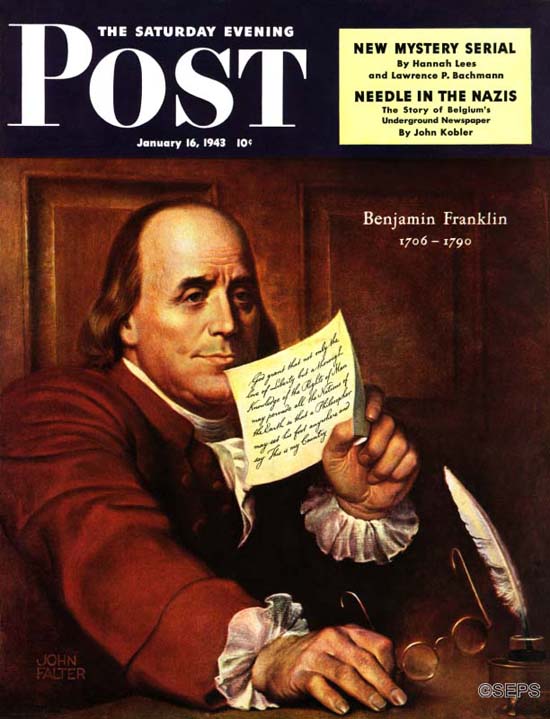
John Falter
“God grant that not only the love of liberty but a thorough Knowledge of the Rights of Man may pervade all the Nations of the Earth so that a Philosopher may set his foot anywhere and say This is my Country.”
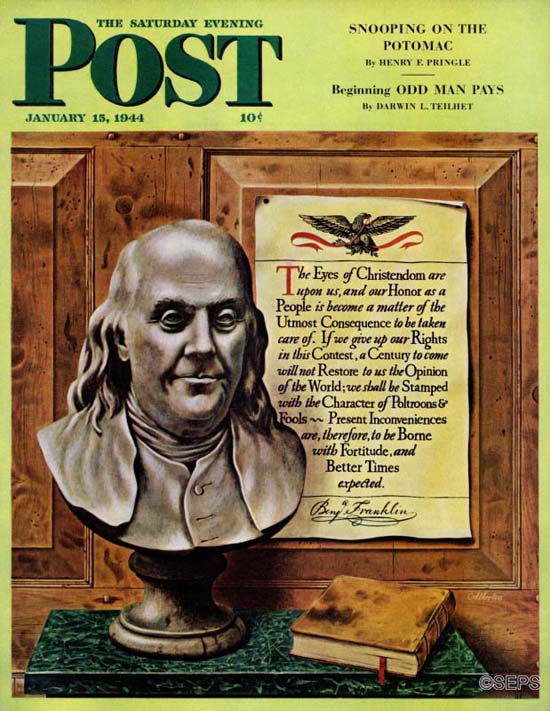
John Atherton
“The Eyes of Christendom are upon us, and our honor as a People has become a matter of Utmost Consequence to be taken care of. If we give up our Rights in this Contest, a Century to come will not Restore us to the Opinion of the World; we shall be stamped with the character of Poltroons & Fools — Present Inconveniences are, therefore, to be Borne with Fortitude, and Better Times expected.”
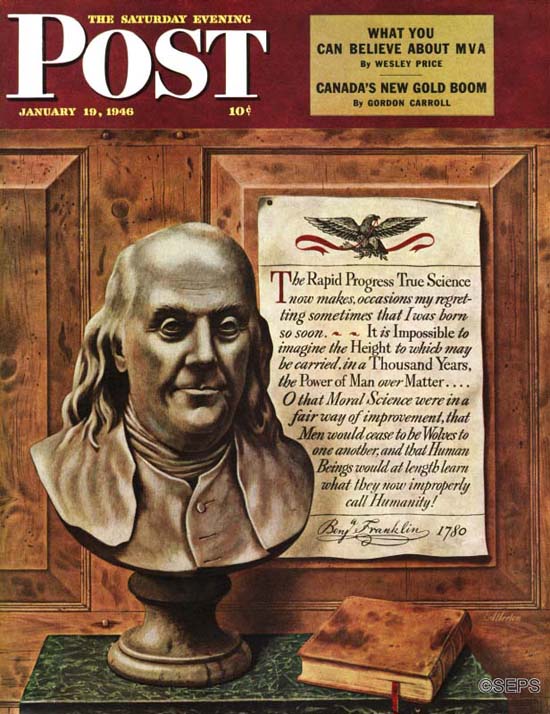
John Atherton
“The Rapid Progress True Science now makes, occasions my regretting sometimes that I was born so soon. It is Impossible to imagine the Height to which may be carried, in a Thousand Years, the Power of Man over Matter…O that Moral Science were in a fair way of improvement, that Men would cease to be Wolves to one another, and that Human Beings would at length learn what they now improperly call Humanity!”
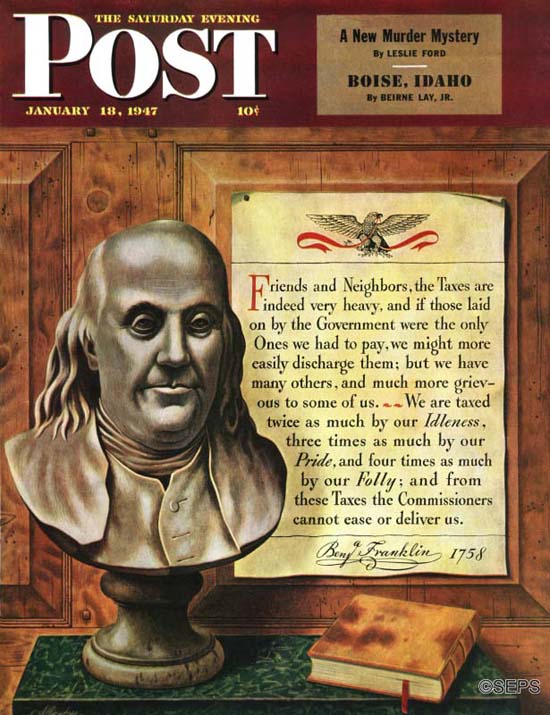
John Atherton
“Friends and Neighbors, the Taxes are indeed very heavy, if those laid on by Government were the only Ones we had to pay, we might more easily discharge them; but we have many others, and much more grievous to some of us. We are taxed twice as much by our Idleness, three times as much by our Pride, and four times as much by our Folly; and from these Taxes the Commissioners cannot ease or deliver us.
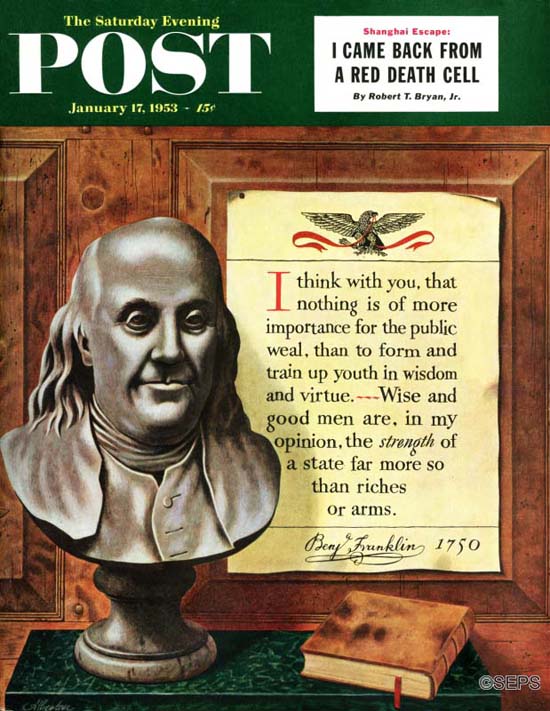
John Atherton
“I think with you, that nothing is of more importance for the public weal, than to form and train up youth in wisdom and virtue. Wise and good men are, in my opinion, the strength of a state for more so than riches or arms.”
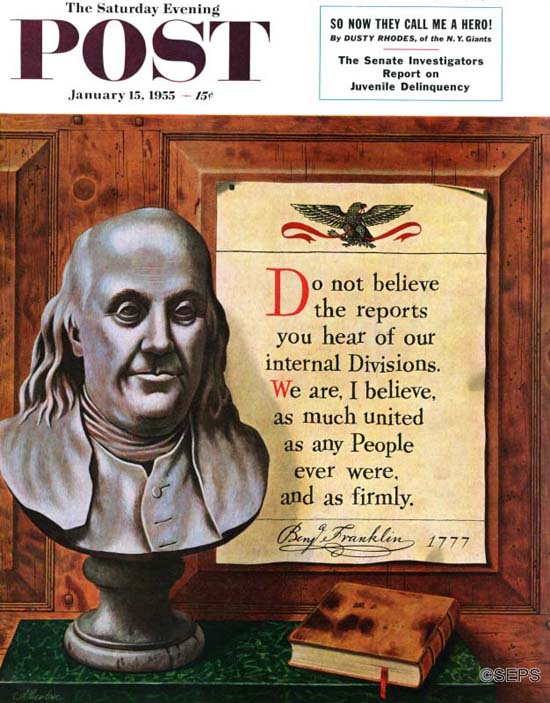
John Atherton
“Do not believe the reports you hear of our internal Divisions. We are, I believe, as much united as any People ever were, and as firmly.”
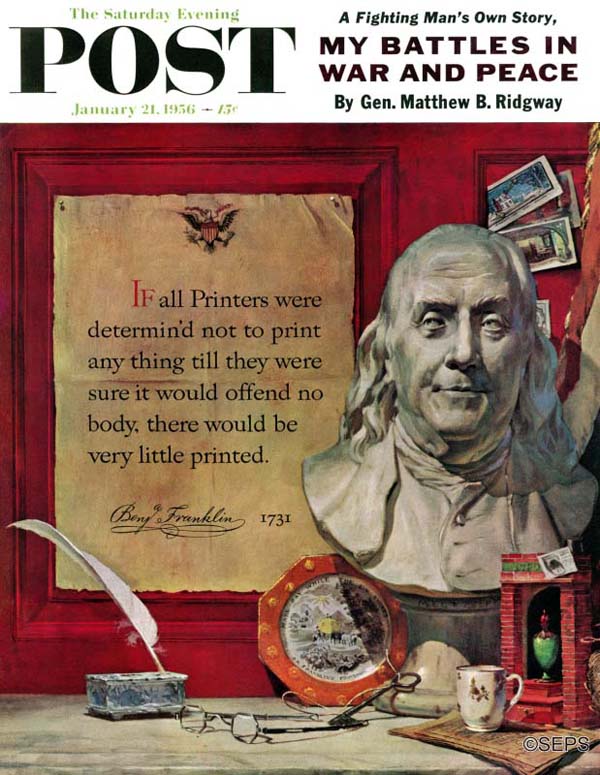
Stanley Meltzoff
“If all Printers were determin’d not to print any thing till they were sure it would offend no body, there would be very little printed.”
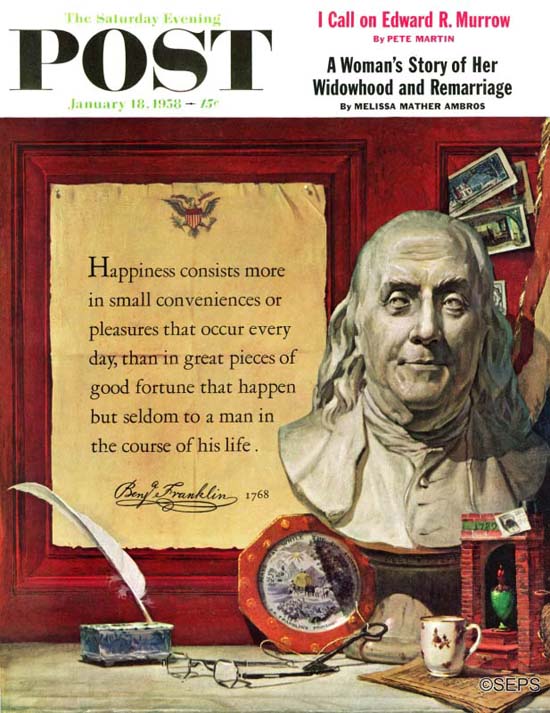
Stanley Meltzoff
“Happiness consists more in small conveniences or pleasures that occur every day, than in great pieces of good fortune that happen but seldom to a man in the course of his life.”